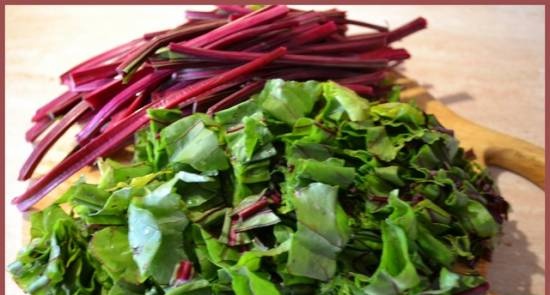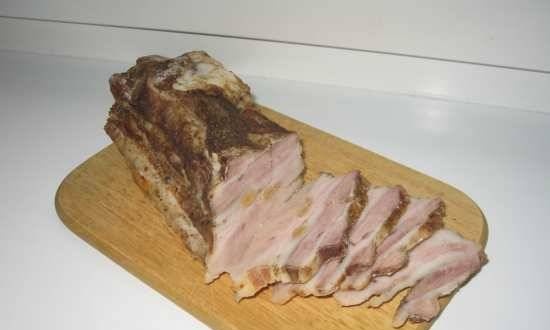|
 Rational nutrition is based on the use of a wide range of food products. Monotonous nutrition is less complete, since in this case the body loses many biologically active substances necessary for its vital activity. Rational nutrition is based on the use of a wide range of food products. Monotonous nutrition is less complete, since in this case the body loses many biologically active substances necessary for its vital activity.
Some food products contain so much of them that they can be considered natural concentrates of biologically active substances. These include green vegetables, citrus fruits, lactic acid foods and others that we have already talked about.
In natural food products, the chemical composition and balance of the constituent parts are determined by nature. We must pay tribute and admit that in most cases, nature has disposed wisely and created a lot of food of exceptional biological value. However, this is not always the case. For example, some fats contain too much cholesterol and very little polyunsaturated fatty acids; in cereals, the vital amino acid lysine is not enough, and inositol, calcium and phosphorus are so tightly connected that it is impossible to break such a bond, and practically all these three important components from bread products cannot be used by the body.
Is it possible for a person to intervene and create food products with the desired, best nutritional and biological properties?
The development of chemistry and the modern level of the chemical industry allow much to be done in terms of improving the qualitative composition and creating new food products. Especially relevant is the enrichment of food with protein and vitamins.
As additional, protein resources, protein substances can be used that are chemically obtained from the microbiological way from oil products, fodder yeast and other non-food raw materials. The chemical industry can already, now, produce a large amount of individual amino acids, primarily lysine, methionine and tryptophan. It is known that cereal proteins are poor in these amino acids, especially lysine. Lack of lysine in cereal proteins negatively affects the overall amino acid balance of the diet.
In solving the problem of lysine deficiency, the proteins of legumes and the protein of skim milk, as well as the widespread production of lysine as such, are called upon to play an important role.
Legumes - soy, peas, beansThe beans stand out sharply for their high lysine and tryptophan content. These products are designed by nature to compensate for the missing lysine in cereals. The industrial production of lysine, methionine and tryptophan in sufficient quantities will most fully satisfy the amino acid composition of food rations. The addition of synthetic amino acids to bread would bring its proteins closer to animal proteins, and such bread could be used as the main high-value food product.
 The role of chemistry in obtaining a variety of targeted enzymes is very important. Among these, ficin is known, which improves the consistency of meat. The enzyme Avamorin accelerates the dough formation process and allows you to get bread in 2-2.5 hours instead of the usual 6-8 hours. The role of chemistry in obtaining a variety of targeted enzymes is very important. Among these, ficin is known, which improves the consistency of meat. The enzyme Avamorin accelerates the dough formation process and allows you to get bread in 2-2.5 hours instead of the usual 6-8 hours.
There are other substances with which it is possible to improve the quality of food. Among these substances, sodium glutamate stands out - a monosodium salt of glutamic acid, which has the ability to restore the natural taste properties of products lost by them during canning.
And how is the issue of synthetic food products being resolved and their complete replacement of existing natural, natural food products of animal and plant origin? We must immediately make a reservation that no synthetic products will replace or displace natural products from human nutrition for many centuries. Yes, such a task has not yet been set.
More promising and closer to reality is the use of nutrients obtained by chemical or biological synthesis from non-food raw materials (for example, from petroleum products) for fattening animals and birds. Already, there is a wide possibility of growing certain types of yeast microorganisms in various non-food environments. The resulting biomass is distinguished by high nutritional properties and is a rich source of complete protein and vitamins of group B. The use of such protein-vitamin feeds makes it possible to improve and accelerate the fattening of animals, and, consequently, to improve the quality of food products used by humans.
What are the prospects for the production of synthetic food products for direct consumption by the population? In the near future, the production of synthetic food products for mass consumption is unlikely to receive any development. At the same time, it is not excluded that certain food products can be obtained synthetically and used in nutrition. So, synthetic products have already been obtained - sorbitol and xylitol, which completely replace sugar in the diet of patients diabetes... These same substances can replace sugar in the diet of people who are overweight, obese and patients with manifestations of obesity.
Various synthetic flavors and colorants are now being produced for use in the confectionery and soft drink industries. Synthetic direct spices are also available.
The current level of development of scientific knowledge and the possibility of chemical synthesis make it possible to create substances that are quite close to food products. It became possible to create food products with desired properties on the basis of natural nutrients. Thus, a product was obtained that is very close to caviar, various types of food products have been created abroad, which are very close to natural ones both in their chemical composition and in external characteristics (for example, chicken meat with a plastic bone, etc.). However, these products cannot be regarded as consumer products and need further study.
It is necessary to take into account the complex relationship and interdependence, and often the antagonism of individual food substances, the need for a maximum variety of nutrition to maintain the functional ability of the digestive glands and the coordinated work of all body systems.
K.S. Petrovsky - Nutrition Science
|
 Rational nutrition is based on the use of a wide range of food products. Monotonous nutrition is less complete, since in this case the body loses many biologically active substances necessary for its vital activity.
Rational nutrition is based on the use of a wide range of food products. Monotonous nutrition is less complete, since in this case the body loses many biologically active substances necessary for its vital activity. The role of chemistry in obtaining a variety of targeted enzymes is very important. Among these, ficin is known, which improves the consistency of meat. The enzyme Avamorin accelerates the dough formation process and allows you to get bread in 2-2.5 hours instead of the usual 6-8 hours.
The role of chemistry in obtaining a variety of targeted enzymes is very important. Among these, ficin is known, which improves the consistency of meat. The enzyme Avamorin accelerates the dough formation process and allows you to get bread in 2-2.5 hours instead of the usual 6-8 hours.









